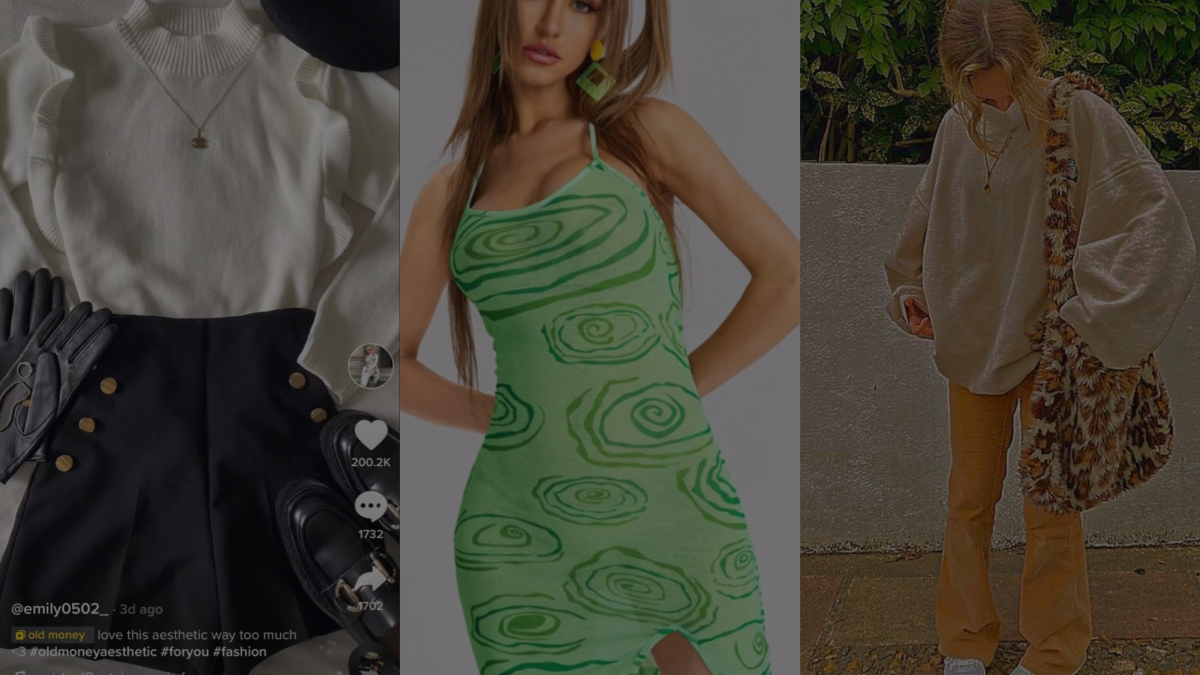Since the advent of TikTok in September 2016, it has slowly risen to become one of the most influential platforms on the Internet today. Currently, it has surpassed one billion downloads from people around the world, making up roughly one-eighth of the population. However, with the rise of its influence, there has also been an increase in the rate of change of trends, or, as this viciously fast cycle has been coined, “microtrends.”
But is this fast-paced consumer world truly sustainable?
From aesthetics such as the popular “coquette,” “cottagecore,” “clean girl,” “old-money,” and many more, trends involving not only clothing, but makeup, hair, perfume, and general composure have been circulating with the rise of TikTok.
There have been many such beauty standards and trends throughout the years, with “twiggy lashes,” “heroin chic,” and many alternative-rock looks dominating the late 90s. These looks were influenced by the supermodels of the time, such as Naomi Campbell and Kate Moss. However, fashion has reached its peak in terms of speed, and instead of relying on specific style icons, consumers are taking inspiration from others online, also termed as “influencers.”
“It’s refreshing to see people who look ordinary suggest outfits or aesthetics instead of people who live a completely different life from me promoting it,” Ellen Park (10), TikTok user, said. “It’s also pretty fun to see different trends whenever I open the app instead of being stuck with the same thing.”
Indeed, despite the average TikTok video being around 21-34 seconds, this short-form app speedily wields immense power over trends. In fact, New York-based content creator Ari states how fashion trends have gone from cycling every 20 years to every month due to influencers and fast fashion.
“From an economic perspective, people want fashionable clothes for cheap, so the effects of fashion due to TikTok trends is more of a negative externality that we don’t make people pay for the actual cost of throwing away clothes nor do we make the companies pay for that,” Morgan Miller, AP Micro/Macroeconomics teacher, said. “So, if society deems this as a problem then that’s something that can only be fixed through either taxing companies or making new regulations about our clothes. But neither one of those seem likely. As long as there are consumers that want fashionable clothes for cheap, there is going to be the same level of demand.”
As a matter of fact, the leading companies of fast fashion are Zara and H&M, which have offered the consumers desperate to follow TikTok-generated content cheap, trendy alternatives that are mass-produced at low cost.
Not only is this a wasteful practice for consumers, it promotes the pervasiveness of unregulated labor practices. Behind this increase of wasteful demand and greedy compliances, there are workers at manufacturing factories of these fast-fashion producers in developing countries working laboriously in horrible work conditions and with little health care.
Fast fashion instigated from these microtrends are not only hurting our pockets and the factory workers, but also the environment.
“Environmentally, fast fashion is really a bad choice,” said Allyson Lee, AP Environmental Science teacher. “First off, the only industry that uses more water than the fashion industry globally is agriculture, because of all the dyes and just getting everything prepared. Secondly, a lot of clothes are made in different countries and imported, so there’s a lot of transportation generally by boat, so that’s creating excess carbon dioxide emissions and global warming emissions.”
So the question we must raise is, are the trade-offs of keeping up with these micro trends worth permanent damage to our environment, factory workers, and our own financial decisions?
Whenever there is the urge to switch out your entire closet, the risks described above should implore you to remember that what is “in” today could be forgotten altogether tomorrow.


